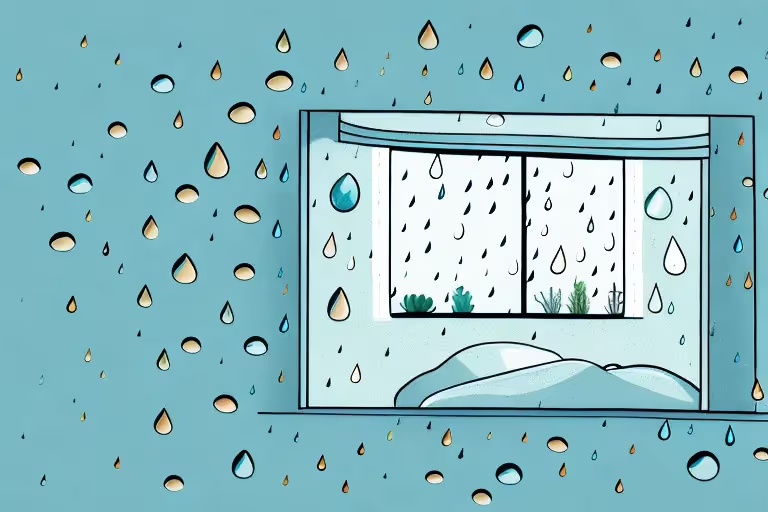In today's fast-paced world, more and more people are turning to meditation as a way to find calm and inner peace. Vipassana meditation, in particular, has gained popularity due to its focus on mindfulness and self-awareness. However, not all Vipassana meditation is the same. In this article, we will explore the differences between Centre and Non-Centre Vipassana Meditation, so that you can make an informed decision about which method is right for you.
Defining Vipassana Meditation
Before we delve into the differences between Centre and Non-Centre Vipassana Meditation, let's first understand what Vipassana meditation is all about. Vipassana, which means "insight" in Pali, is a technique that originated in ancient India. It is a form of meditation that involves observing the sensations in your body and developing insight into the true nature of reality. Through the practice of Vipassana meditation, one can cultivate mindfulness, concentration, and wisdom.
The Origins of Vipassana Meditation
Vipassana meditation can be traced back to the teachings of Gautama Buddha, who is said to have rediscovered this ancient technique more than 2,500 years ago. The Buddha himself attained enlightenment through the practice of Vipassana meditation and taught it to his disciples as a means to achieve liberation from suffering. Since then, Vipassana has been passed down through various lineages and is now taught all over the world.
Key Principles of Vipassana Meditation
Vipassana meditation rests on a few key principles. Firstly, it emphasizes the importance of observing reality as it is, without any judgment or attachment. When practicing Vipassana, meditators are encouraged to simply observe the sensations in their bodies, whether pleasant or unpleasant, without getting caught up in liking or disliking them. This non-judgmental observation allows practitioners to develop a deep understanding of the impermanent nature of all phenomena.
Secondly, Vipassana highlights the impermanence of all phenomena, teaching practitioners to develop equanimity and not cling to pleasant experiences or resist unpleasant ones. By recognizing that everything in life is subject to change, meditators learn to let go of attachments and aversions, cultivating a sense of balance and acceptance.
Lastly, Vipassana encourages practitioners to cultivate mindfulness in all aspects of their lives, not just during formal meditation sessions. The goal is to bring the awareness and insight developed on the meditation cushion into everyday activities, such as eating, walking, and interacting with others. By staying present and attentive in each moment, individuals can deepen their understanding of themselves and the world around them.
Through the practice of Vipassana meditation, individuals can experience profound personal transformation. It is a journey of self-discovery and self-transcendence, leading to greater clarity, peace, and freedom. As one continues to deepen their practice, they may uncover insights into the interconnectedness of all things and develop a profound sense of compassion and empathy for all beings.
Exploring Centre Vipassana Meditation
Centre Vipassana meditation refers to the practice of Vipassana at specialized meditation centers, often in retreat-like settings. These centers offer structured courses ranging from a few days to several weeks, during which participants are required to observe strict rules of silence and abstain from engaging in any form of distractions. The aim of Centre Vipassana is to provide a conducive environment for deepening one's practice and experiencing profound transformation.
The Role of a Meditation Centre
At a meditation center, participants are guided by experienced teachers who provide instructions and support throughout the course. The center provides a dedicated space for meditation, free from the distractions of daily life. The schedule is structured, with periods of sitting and walking meditation, as well as time for rest and reflection. Additionally, participants have the opportunity to engage in discussions and ask questions, further enhancing their understanding of the practice.
Benefits of Centre Vipassana Meditation
The benefits of practicing Vipassana meditation at a center are manifold. Firstly, the retreat-like environment allows for deep immersion in the practice, free from the distractions and responsibilities of everyday life. This can greatly enhance one's concentration and ability to observe the mind and body in a focused manner. Secondly, the guidance of experienced teachers ensures that participants receive proper instruction and support, leading to a more fruitful meditation experience. Lastly, the communal aspect of a meditation center can foster a sense of camaraderie and support among practitioners, creating a conducive atmosphere for growth and self-discovery.
Delving into Non-Centre Vipassana Meditation
On the other hand, non-centre Vipassana meditation refers to the practice of Vipassana in one's own home or any other convenient location. Unlike the structured courses offered at meditation centers, non-centre Vipassana allows for greater flexibility and adaptability to individual schedules and preferences.
Practicing Vipassana at Home
Practicing Vipassana at home requires self-discipline and a commitment to maintaining a regular meditation routine. Many resources are available to support home practice, such as meditation apps, online guided meditations, and books. The key is to create a dedicated space for meditation, free from distractions, and establish a consistent schedule. With perseverance and dedication, one can delve deep into the practice of Vipassana meditation in the comfort of their own home.
Advantages of Non-Centre Vipassana Meditation
Non-centre Vipassana meditation offers certain advantages over the center-based approach. Firstly, it allows for greater flexibility in terms of timing and duration of meditation sessions. This can be particularly beneficial for individuals with busy schedules or those who prefer shorter, more frequent meditation sessions. Secondly, practicing at home eliminates the need to travel to a meditation center, making it more accessible to a wider range of people. Additionally, some practitioners find that the familiar and comfortable environment of their own home enhances their ability to relax and focus.
Comparing Centre and Non-Centre Vipassana Meditation
Now that we have explored the characteristics of Centre and Non-Centre Vipassana Meditation, let's compare the two methods to better understand their similarities and differences.
Similarities Between the Two Methods
Despite their differences, Centre and Non-Centre Vipassana Meditation share common ground. Both approaches emphasize the practice of mindfulness and self-awareness. Whether you choose to practice at a meditation center or in your own home, the core principles of Vipassana remain the same. Both methods require discipline, dedication, and a commitment to regular practice.
Distinct Differences and Their Implications
However, there are distinct differences between Centre and Non-Centre Vipassana Meditation that can have different implications for practitioners. Centre Vipassana provides a structured and immersive experience, conducive to deepening one's practice and experiencing profound transformation. On the other hand, Non-Centre Vipassana offers greater flexibility and adaptability, making it more accessible to a wider audience.
Choosing the Right Vipassana Meditation Method for You
Now that we have explored the differences between Centre and Non-Centre Vipassana Meditation, you might be wondering which method is right for you. The choice ultimately depends on your personal preferences, lifestyle, and goals.
Factors to Consider
When making your decision, consider factors such as your available time, resources, and level of commitment. If you value structure, guidance, and the opportunity to deepen your practice in a focused environment, Centre Vipassana may be the right choice for you. On the other hand, if flexibility, convenience, and the ability to practice in the comfort of your own home are important to you, Non-Centre Vipassana may be the better option.
In conclusion, understanding the differences between Centre and Non-Centre Vipassana Meditation is essential for making an informed decision about which method to pursue. Whether you choose to embark on a retreat-like journey at a meditation center or cultivate mindfulness in the familiar surroundings of your own home, the practice of Vipassana meditation can have profound benefits for your well-being and personal growth.
Just like Centre and Non-Centre Vipassana Meditation offer different approaches to meditation, the Aura Health App provides a wide range of guided meditation practices to suit your individual needs. Whether you prefer the structure of center-based meditation or the flexibility of practicing at home, the app has you covered. With its user-friendly interface and diverse library of meditation sessions, the Aura Health App is your personal companion on the journey to inner peace and mindfulness.
Aura is Your All In One App for Meditation, Mindfulness Wellbeing
Find peace every day with one app for your whole well-being. There is no one-size-fits-all solution to mental well-being. Aura is the first all-in-one wellness app that learns how to best help you. Discover an endless library of expert-created tracks for your well-being, all taught by the world’s best coaches, therapists, and storytellers. With Aura's personalized recommendations, you can find peace every morning, day and night.



.webp)






.avif)

%20(1).avif)


.avif)
.avif)
.webp)


.avif)


















































































































.avif)

















.svg)









